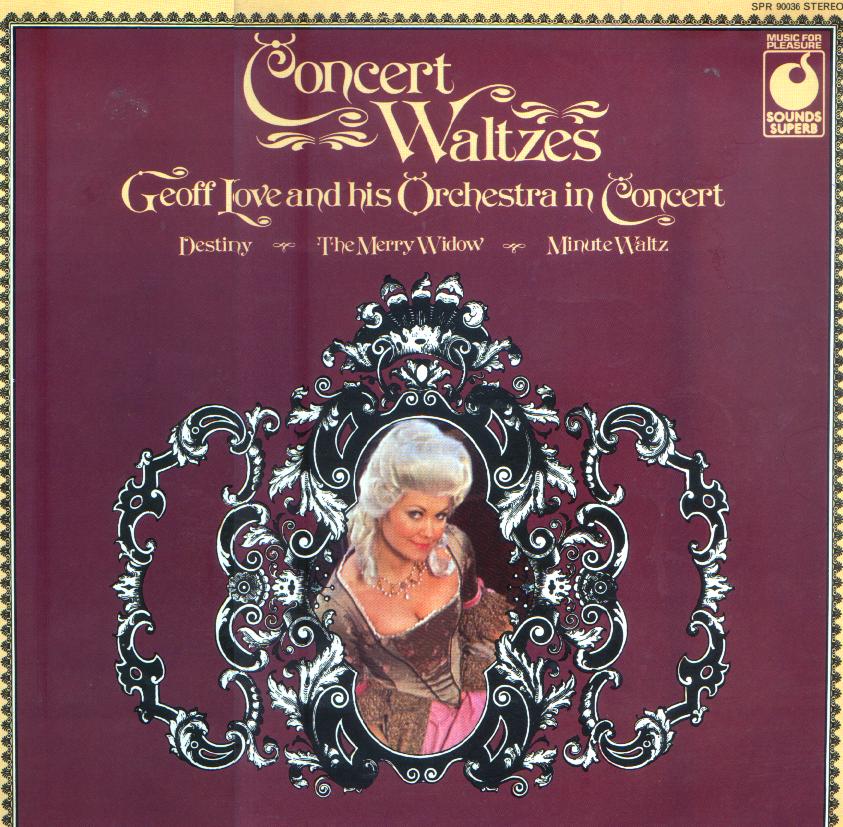


TRACK LISTING
SIDE ONE
1 The Sleeping Beauty
2 The Merry Widow
3 Tales from the Vienna Woods
4 Dusk
SIDE TWO
1 The Skaters' Waltz
2 Minute Waltz
3 Destiny
4 Invitation to the Dance
Produced by Norman Newell
Assistant Producer: Gil King
1974 A Supertunes Production
For countless years the Bavarian and Austrian peasantry cavorted to a
triple-time dance called the landler. These peasant rhythms passed through the
refining hands of Mozart, Beethoven and Schubert and were eventually to inspire
Johann Strauss.
The love dance of modern civilization, the waltz was at first considered
lascivious, but gained respectability when Tsar Alexander II danced it in
public. It culminated in the immortal waltzes of the Strausses, father and son,
and from Vienna conquered the world. Such serious musicians as Brahms and Wagner
paid tribute to the genius of the younger Strauss, The Waltz King'.
Many of Strauss's waltzes were composed during the 1860's, before he turned his
attention to operetta. Among the collection of waltzes presented here is the
delectable Tales from the Vienna Woods, which belongs to that period.
The remainder of the collection includes waltzes by such masters as Chopin,
Tchaikovsky, Waldteufel and Lehar. Tchaikovsky's ballet scores are studded with
beguiling waltz themes, the waltz from The Sleeping Beauty being among, the most
familiar. The Alsatian composer Emile Waldteufel, regarded as a kind of French
Strauss, wrote hundreds of waltzes, one of the most appealing being The Skaters'
a favourite with Toscanini. The Hungarian born Franz Lehar mainly devoted
himself to composing operettas, the most familiar being The Merry Widow, whose
principal waltz theme is known the world over. Chopin's waltzes number nineteen
in all, but it is probably number six, Op 64 No. 1 called the Minute Waltz, that
has achieved the most popularity. Although Armstrong Gibbs was quite a prolific
composer, his name will remind most people of one work - Dusk, which has always
enjoyed frequent performances and is in the best tradition of English light
music. Weber's Invitation to the Dance originally started life as a piano piece,
and it was Berlioz who saw the possibilities of the work and transcribed it for
orchestra. Sydney Baynes' Destiny has enjoyed a long life and is admired as much
today as ever, which goes to prove that the public still loves a good tune.
Frederick Youens